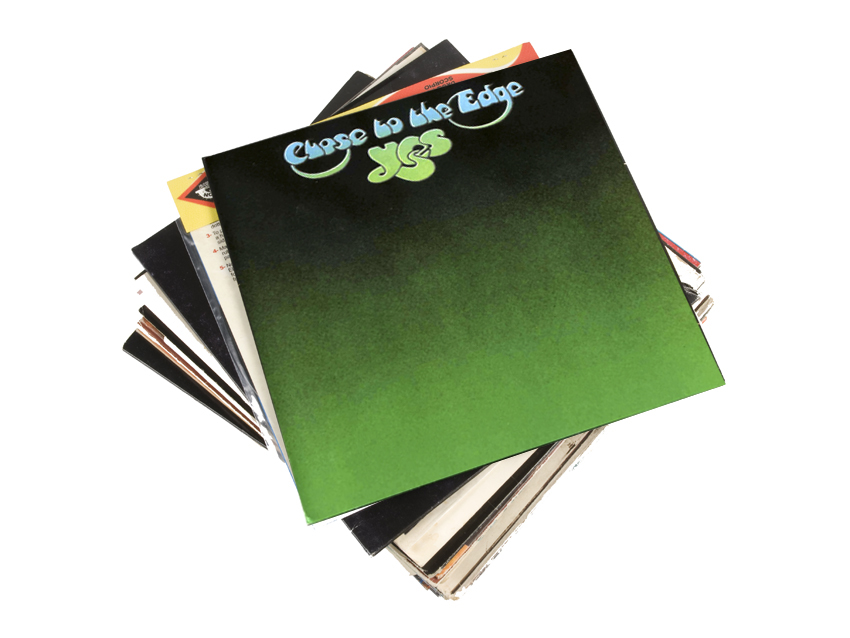
Jon Anderson talks Yes' Close To The Edge track-by-track
"We were on top of the world when we made Close To The Edge," says singer-songwriter Jon Anderson, recalling the early months of 1972 when he and his Yes mates (guitarist Steve Howe, bassist Chris Squire, keyboardist Rick Wakeman and drummer Bill Bruford) holed up inside London's Advision Studios to record the follow-up to their breakout hit, Fragile, which was released a year earlier.
“The band had just done a huge tour for Fragile,” says Anderson, “and we were quite pleased at how the audiences were loving the longer pieces that we played live. Roundabout was eight minutes long, Starship Trooper was nine, and Heart Of The Sunrise was over 11 minutes. These are well-constructed pieces of music that really worked on stage. We were feeling very powerful, like we could do anything.”
And that they did. Comprised of just three songs – the title track along with And You And I, both four-movement epics, plus the relatively short (at eight minutes, 55 seconds) Siberian Khatru – Close To The Edge was the result of the progressive rock band’s musical impulses running on full, a broad canvas of dizzying instrumental exchanges supporting Anderson’s sublime, mystical poetic vistas.
“It’s very representative of what I think is the Yes style,” Anderson says. “We experimented a lot, but we also had the talent to back it up – it wasn’t just solo after solo. We told stories and created moods. It was all very daring and wonderful.”
The group eschewed making demos, preferring to work on rough ideas while co-producer Eddy Offord rolled tape. After several weeks, concepts were sewn together into elaborate song structures. “We’d get the basic sketch of something, and then it was a matter of refinement,” says Anderson. “A piece would start to feel complete, but then I’d look to Steve and say, ‘We need a very poignant 12-string guitar introduction.’ He’d come up with it, it would be great, and we’d be off.”
Released on 13 September 1972, Close To The Edge bested the performance of Fragile, reaching No. 4 on the UK Albums Chart and placing a spot higher on Billboard’s Top 200 in the US. “FM stations really supported us, particularly on the college campuses in the States,” says Anderson. “They weren’t interested in what was commercial – they were just into playing great music.”
On the following pages, Anderson looks back at the writing and recording of Close To The Edge, offering his insights into the record track-by-track (and, more specifically, movement-by-movement). “It was the beginning of my musical journey in terms of really understanding structure,” he says. “I was able to help guide the band into Tales From Topographic Oceans, The Gates Of Delirium and Awaken. Everybody was so talented, so we could play these epic songs marvelously. The biggest thing was that we were all in harmony. We were truly connected.”
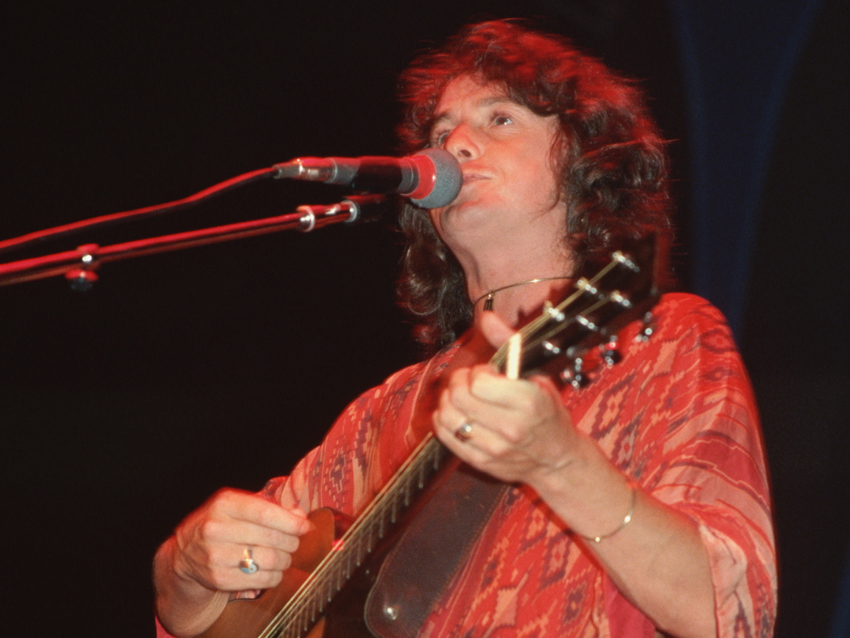
Close To The Edge - The Solid Time Of Change
“I had been listening to an album called Sonic Seasoning by Walter Carlos, who’s now Wendy Carlos, and it gave me the idea for this sound effect that came from outer space. It came towards you and then bang! – the band started charging. At first, there’s this wonderful musical chaos, and then we have the guitar riff.
“The idea of the chant was key to the song. [Sings] ‘A seasoned witch could call you from the depths of your disgrace/ And rearrange-da-dada-dada-dada-da-da-daa.’ It’s a rhythmic thing. I worked that out with Steve.
“The band started playing, and I said, ‘Guys, maybe you should be doing something more syncopated instead of a straight-on beat.’ So while Bill and Chris worked on a drum and bass thing, I looked at Rick and said, ‘OK, how fast can you play?’ And, of course, he could play very fast. The whole idea was to make it musically entertaining even before we put the voices on.
“For lyrics, I did a rough sketch of the whole piece, but as the sections came together, that’s when I rewrote the words. It took about three or four revisions till everything was there. It’s all metaphors. Simply put, ‘A seasoned witch could call you from the depths of your disgrace’ – that means your higher self will eventually bring you out of your dark world.”
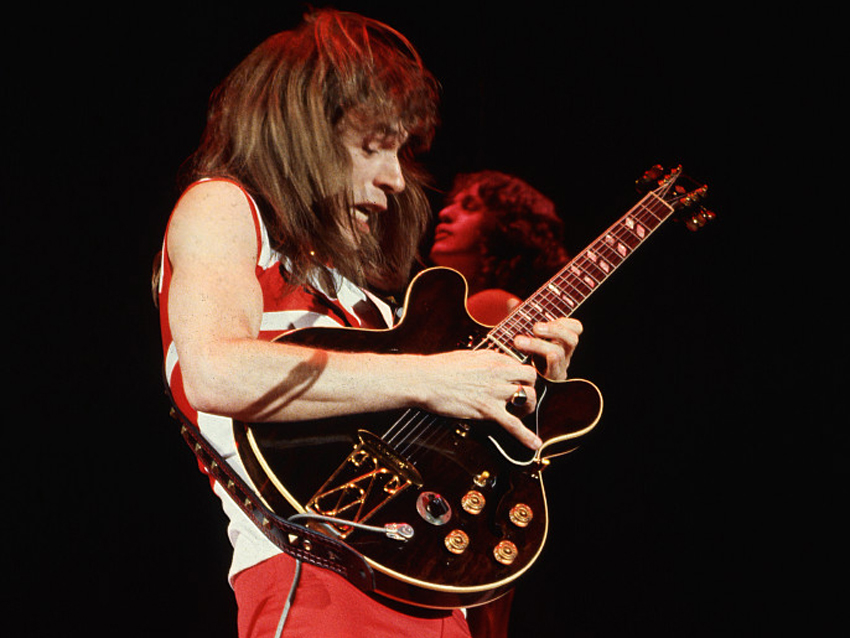
Close To The Edge - Total Mass Retain
“We’ve laid the foundation of where we’re going to go, and now we’re into the second part. This is about the relaxation of life and being close to the edge of the realization of our universal experiences. That’s what the song is starting to explain.
“This part flows. It shows you that you have to let music guide you. It’s best to open up and not force the situation. Everything will come to you.
[Sings] “’Sudden cause shouldn't take away the startled memory/ all in all, the journey takes you all the way.’ The idea is that life is an ongoing journey, and you have to enjoy it, you know?”
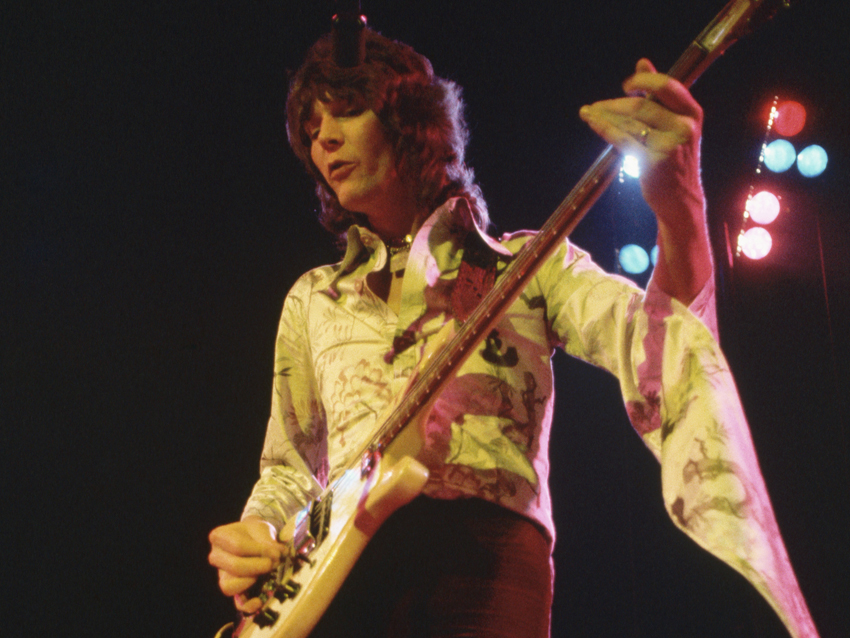
Close To The Edge - I Get Up, I Get Down
“We have the ‘the I get up, I get down’ part before it goes into a beautiful ocean of energy. You’ve gone through nearly 10 minutes of music that’s very well put-together, but then you want to let go of it. You relax a little bit.
“The song came about because Steve was playing these chords one day, and I started singing, ‘Two million people barely satisfy.’ It’s about the incredible imbalance of the human experience on the planet.
“The vocals came together nicely. I’m a big fan of The Beach Boys and The Association – such great voices. Steve and I were working on this, and at one point he said, ‘I have this other song…’ And I said, ‘Well, start singing it.’ And he went [sings], ‘In her white lace, you could clearly see the lady sadly looking/ saying that she'd take the blame for the crucifixion of her own domain… ’
“When I heard that, I said, ‘Wait. That’s going to be perfect! You start singing that with Chris, and then I’ll sing my part.’ We have an answer-back thing.
“I heard a record with a church organ. I can’t remember what the album was, but I remember that it really woke things up. Going into the end, we needed something really big. Sonically, it changes all the textures.”
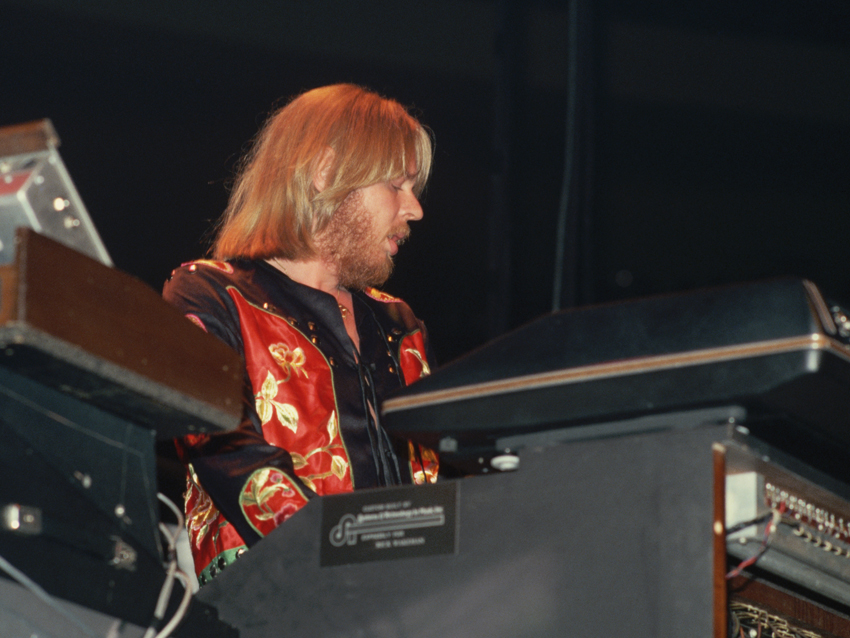
Close To The Edge - Seasons Of Man
“The arrangement had gone to where Rick was doing a solo. We’d always tried to give Steve a solo, then Rick a solo… Chris and Bill were working out the drum and bass parts. I said, ‘There’s got to come a time where I can get back in with [sings] The time between the notes relates the color to the scenes.’ Because the band is just cookin’ away, so I knew we needed a crescendo, and that’s where I came back in singing. They rehearsed it a few time, and this phrase then came out of the keyboard-organ solo.
“The line that goes, ‘Then according to the man who showed his outstretched arm to space/ he turned around and pointed, revealing all the human race’ – I’d had this dream where I was up on a mountain. This man was holding me around the shoulders, and he was pointing and saying, ‘That’s the human experience.’ And I smiled because I realized that it was true.”
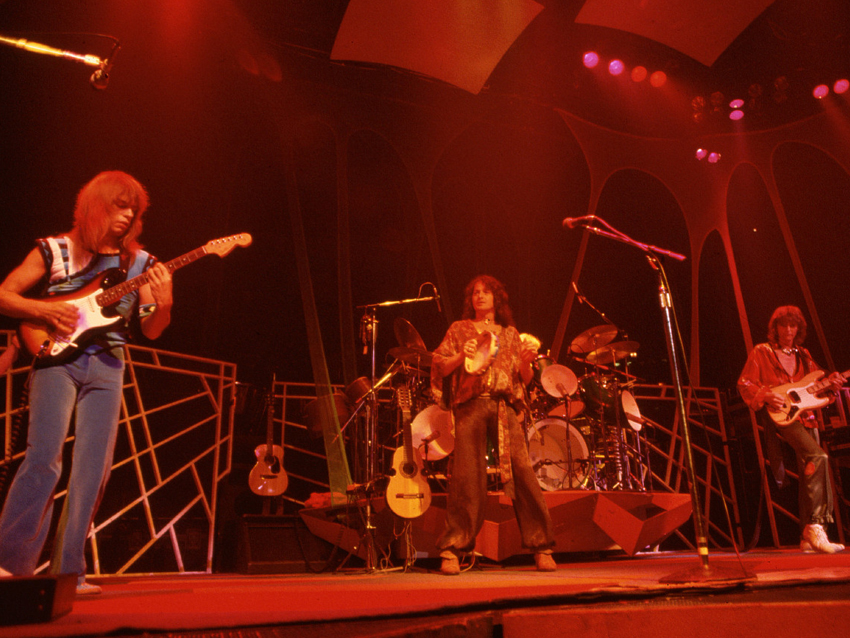
And You And I - Cord Of Life
“And You And I was written in maybe five different sections, and then we put them all together. The idea was very straightforward at first. It was going to be a very pretty folk song that I wrote with Steve. Soon we decided that it was to be surrounded by very big themes.
“’A man conceived a moment's answers to the dream/ staying the flowers daily, sensing all the themes’ – I love singing this song on tour. In fact, I still sing it.
“When we were writing in those days, it was ‘Here’s the verse, here’s the verse, we’ve gotta get from the verse to the bridge.’ We had to make the bridge very, very different. ‘And you and I climb over the sea to the valley, and you and I reached out for reasons to call’ – and then we’re going to hold that note, and the theme is going to come back in.
“I would always record Rick when he was writing music. He was working on something at the time, and I said, ‘Let’s develop this theme.’ It felt really good.”
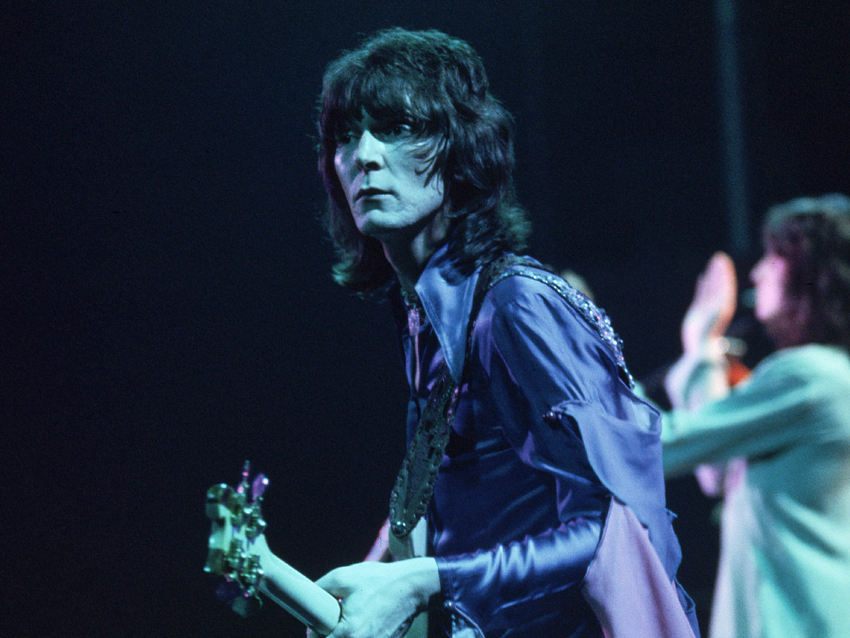
And You And I - The Preacher The Teacher
“It goes to a totally different song and feel. Steve is a magical guitar player, and he could switch to a new style so easily. I said to him, ‘It’s got to be have a real country feel to it.’ He knew just what to do, and then Chris, one of the greatest melodic bassists ever, came in, and right there the song sat together so sweet.
“We wrote this section in one afternoon, but it probably took about a week to put the whole piece of music for And You And I together.”
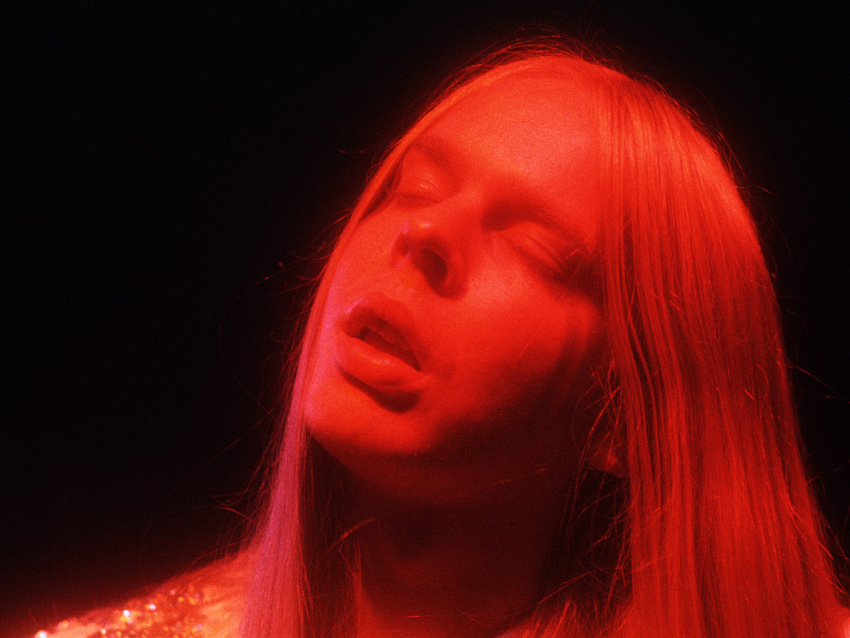
And You And I - Apocalypse
“Nearly all of the music we ever made had one thought behind it: what will it sound like on stage? We liked to make records, but our main reason for doing what we did was to perform live, surrounded by a sound system and under the lights.
“I remember when we did And You And I at the Spectrum in Philadelphia for the first time. The whole room was so alive with the music we were making – it was really overwhelming – and when we were finished, the audience cheered and clapped for 15 minutes. I’m not kidding.
“That’s what I think of when I remember the end moments of And You And I. It was one of those times in your life that you never forget.”
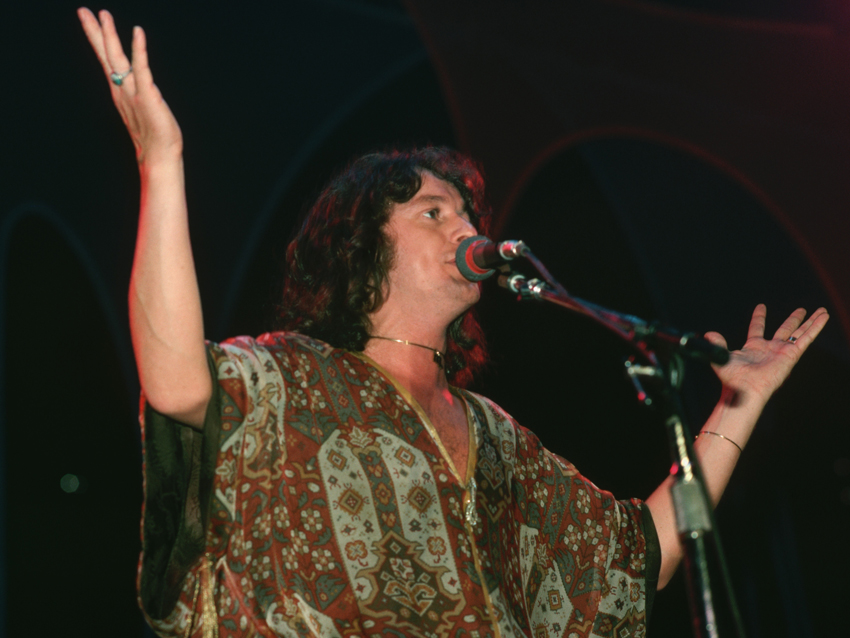
Siberian Khatru
“I was playing this on acoustic guitar the other day. ‘Khatru’ means ‘as you wish’ in Yemeni. When we were working on it, I kept singing the word over and over again, even though I had no idea what it meant. I asked somebody to look it up for me, and when they told me the meaning, it worked for the song.
“I had already written most of it, but I needed help with some of the sections. I started playing it on guitar for the band, and then I realized that it needed a strong riff. Steve really helped out with some of the parts and, of course, the riff. The song could work with the riff and the vocals alone.
[Sings] “’Even Siberia goes through the motions… ‘” The idea is that Siberia is so far away. The Iron Curtain still existed, and Siberia was like this no man’s land. Russia is such a huge country, and the thought was that life still happens there as it does here.
“The verses have a different rhythmic feel. We had a lots influences and elements going on. Before Yes, I was in a band in the ‘60s, and we did all the R&B songs that were on the charts. I loved singing those songs, but I didn’t want to write about the same things subject-wise. ‘My babe don’t love me no more, what am I gonna do?’ – why should I compete with people who were writing those songs so damn well?
“Steve’s guitar playing is brilliant. I’ve always been amazed at his incredible talent. Even on the last tour I did with him, I’d come off stage and say to him, ‘How do you do that?’ But the great thing about his playing here is that he’s always aware of the structure. He’s not just playing to play.
“The song builds and builds and builds and builds – you’re taking the audience on an epic adventure. People think it can’t get bigger, but it does. The vocalization I was doing – ‘Bluetail, tailfly, Luther, in time, suntower, asking, cover, lover’ – it builds and builds, too, and then it goes into the solo, and everybody goes crazy. A very cool song.”
Joe is a freelance journalist who has, over the past few decades, interviewed hundreds of guitarists for Guitar World, Guitar Player, MusicRadar and Classic Rock. He is also a former editor of Guitar World, contributing writer for Guitar Aficionado and VP of A&R for Island Records. He’s an enthusiastic guitarist, but he’s nowhere near the likes of the people he interviews. Surprisingly, his skills are more suited to the drums. If you need a drummer for your Beatles tribute band, look him up.

